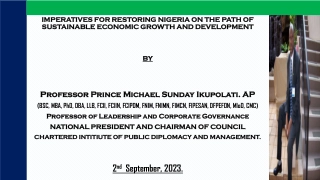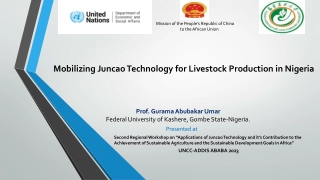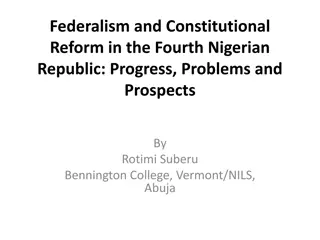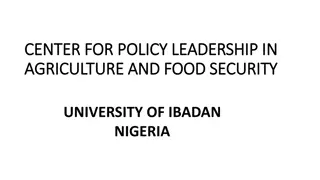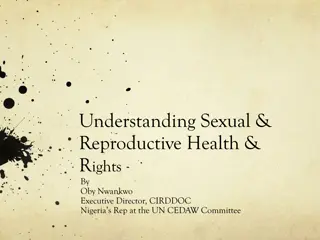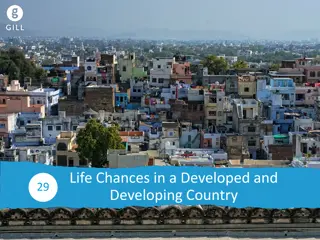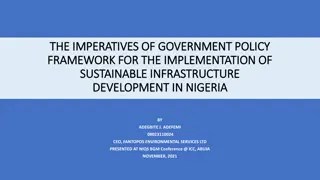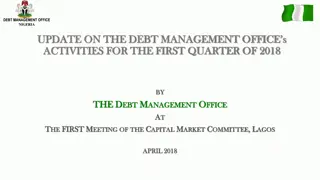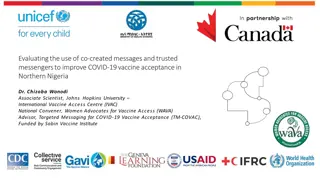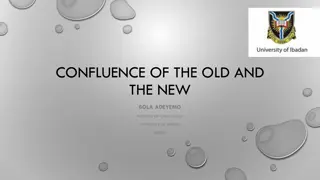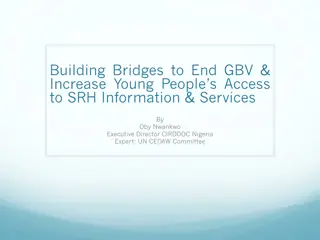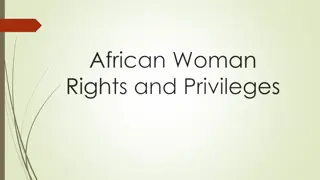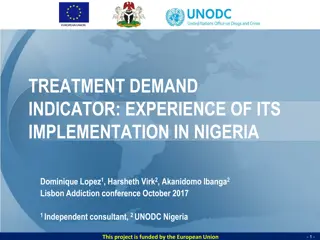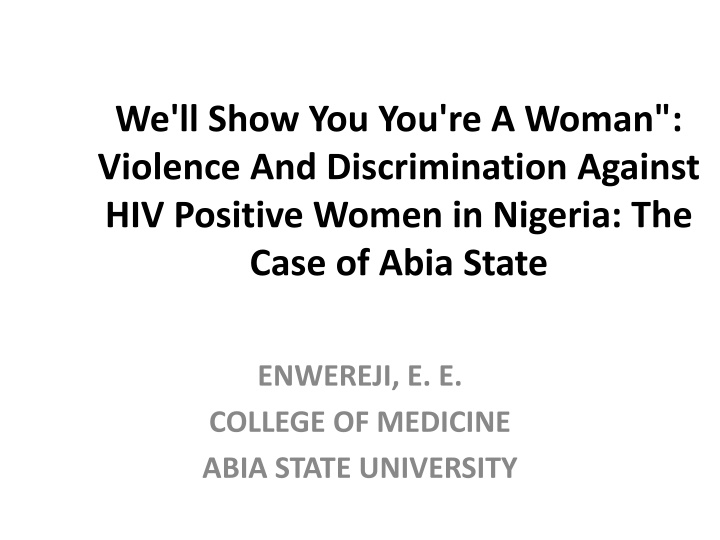
Violence and Discrimination Against HIV Positive Women in Nigeria
Explore the prevalence of violence and discrimination faced by HIV positive women in Nigeria, particularly in Abia State, shedding light on cultural practices that contribute to their marginalization. The study delves into issues of access to family resources, societal attitudes, and challenges these women encounter in their daily lives.
Download Presentation

Please find below an Image/Link to download the presentation.
The content on the website is provided AS IS for your information and personal use only. It may not be sold, licensed, or shared on other websites without obtaining consent from the author. If you encounter any issues during the download, it is possible that the publisher has removed the file from their server.
You are allowed to download the files provided on this website for personal or commercial use, subject to the condition that they are used lawfully. All files are the property of their respective owners.
The content on the website is provided AS IS for your information and personal use only. It may not be sold, licensed, or shared on other websites without obtaining consent from the author.
E N D
Presentation Transcript
We'll Show You You're A Woman": Violence And Discrimination Against HIV Positive Women in Nigeria: The Case of Abia State ENWEREJI, E. E. COLLEGE OF MEDICINE ABIA STATE UNIVERSITY
Abstract Introduction cultural practices have generated a lot of conflict among women, they are denied their husbands property after their husbands death. Study examined how cultural obligations promote violence and discriminations against HIV positive women. Question is, to what extent are HIV/AIDS positive women allowed access to family resources in Nigeria?
Materials and method: Instruments used were questionnaire, focus group discussion and interview guides. A total sample of 98 HIV positive women was studied. Five key informants were interviewed to authenticate responses got from women. Data were analyzed qualitatively and quantitatively.
Results HIV positive women were faced with extensive discrimination and violence in their daily lives. 85(86.7%) were denied rights to family resources like land etc.. they complained of lack of money to procure ART and food items. 79.6% of the women were aware of risks of unprotected sex, Yet 54(55%) of them practised it. Common reason proffered was money sex attracted for their upkeep. 59(60%) were ejected from their matrimonial homes for demanding their husbands property.
TABLE 1: Marital Status of Respondents Ejected from their Families Ejected from the family Married Single Widowed Total Yes 7(7.1%) 4(4.1%) 48(49%) 59(60%) No 13(13.3%) 10(10.2%) 16(16.3%) 39(40%) Total 20(20.4%) 14(14.3%) 64(65.3%) 98(100%)
Reasons for Ejecting some Respondents Reason N=59 Frequency For demanding husbands property 38(64.4%) For refusing to be inherited 22(37.3%) For being HIV positive 29(49.2%) For asking for financial assistance 36(61%) For not having male children 19(32.2%) For being sickly 11(18.6%) For refusing to have sex 20(33.9)
Respondents residence and unprotected sexual activity Ever used condom during sex Respondents by location Response category Urban Rural Total Yes 11(11.2%) 9(9.2%) 20(20.4%) No 17(17.3%) 37(37.8%) 54(55.1%) Do not have sex 10(10.2%) 14(14.3%) 24(24.5%) Total 38 (38.8%) 60(61.2%) 98(100%)
Table 4: Respondents Perceived Risk of HIV Infection Perceived risks Respondents by frequency of response Responses Widows Widows (inherited) Married (cohabiting Married (not cohabiting) Single Total (not inherited) Great risk 23(23.5%) 4(4.1%) 2(2%) 4(4.1%) 5(5.1%) 38(38.8%) Moderate risk 12(12.2%) 2(2%) 3(3.1%) 3(3.1%) 2(2%) 22((22.4) Low risk 5(5.1%) 7(7.1%) 1(1%) 2(2%) 3(3.1%) 18(18.4%) No risk 8(8.2%) 3(3.1%) 2(2%) 2(2%) 4(4.1%) 20(20.4) Total 48(49%) 16(16.3%) 8(8.2%) 12(12.2%) 14(14.3%) 98(100%)
reasons for taking this risk include male partners dislike for condom use, inability to negotiate for condom use, un-affordability of condom, desire to have babies, and fear of losing financial assistance.
Discussion and conclusions: the number of women with children chased out of their matrimonial homes showed they had extensive discrimination and violence in their daily lives. Chasing HIV positive women with children out of their families and seizing their husbands property are arguably domestic violence, which should be discouraged. the women s crave for money to meet the demands of HIV infection exposed them to unprotected sex giving concern for increased HIV infection
this attitude calls for HIV seminar. Denying HIV positive women access to financial resources could have devastating effects on their economic empowerment and sexual life. this contributes to gender-based discrimination, pervasive marginalization and others. If the denial continues, governments efforts (Federal, State and Local) in mitigating the impacts of HIV/AIDS would have no significant result.
It is plausible to recommend that the government should outline and implement interventions capable of promoting HIV positive women s property and inheritance rights so as to enhance their empowerment and socio-economic advancement. can change social norms, local customs, and other practices that negatively influence decisions concerning women s rights to property transfers.
Conclusion: enlightenment seminars are needed to reduce the trends of violence on HIV positive women.
References 1. Mphale, M.M. Emmanuel G.R. And Mokhantso G.M. HIV/AIDS and its impact on land tenure and livelihoods in Lesotho Background paper for FAO/SARPN workshop on HIV/AIDS and land tenure, 24- 25 June, 2002 Pretoria South Africa. 2. Whiteside, A. poverty and HIV/AIDS in Africa. Third World Quarterly, 2002 23 (2) : 313 332 3 .World Bank HIV/AIDS and gender equity. gender and development briefing Notes. 2003 Washington, D C: World Bank. Food and Agriculture Organization , gender and access to land, FAO land tenure 2002. Studies 4: Rome , Food and Agriculture Organization. 5. Umeasiegbu, R.N. The way we lived: Igbo customs and stories 1977 London: Publishing Company.

